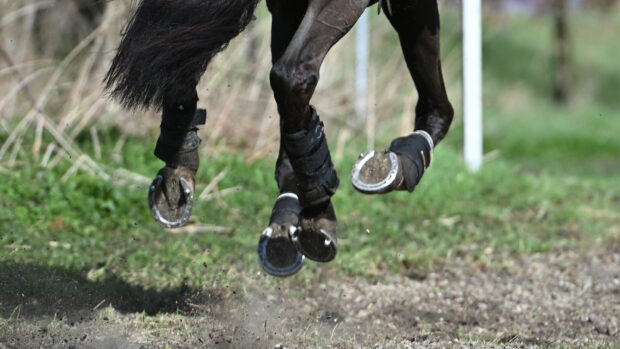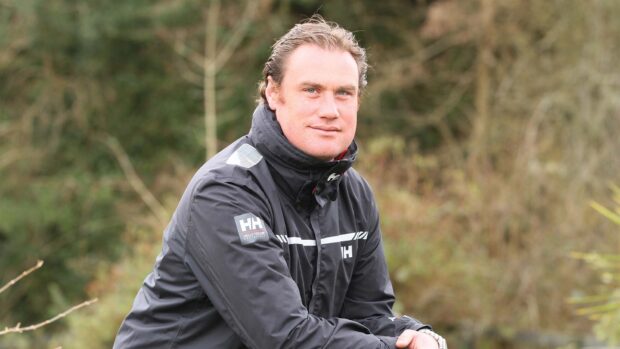THE horse world has to be open to new knowledge and scientific evidence when it comes to equine welfare – but a consensus may never fully be reached on “when does use become abuse?”
This was the theme of the 25th World Horse Welfare conference on 10 November, as experts spoke on various facets of the dividing line, and what can be “shades of grey”.
“It’s a question World Horse Welfare has been reflecting on and working on for almost 100 years,” said the charity’s chief executive Roly Owers.
“Never before has there been such a mix of views, among the public, but also across the horse world and academia, and in our own charity.”
Mr Owers believes there are three reasons for this: thanks to our digital world, people are more aware of animal welfare and the debate is more visible, society’s values are changing, making animal welfare a higher priority and society is “more suspicious of ‘traditional’ use of animals”. Also, thanks to scientific research, we know more than we ever have on horses’ needs, and how what we do affects them.
“Science is changing the landscape of what good horse welfare looks like,” he said. “And what makes a strong horse-human partnership. We must wake up to the fact that for all the love and care given to horses by their owners, and many enlightened practices, too often these can be perceived by society as the exception rather than the rule. For many people, what they see is horses being used and abused.”
Mr Owers cited consequences of this: riding being dropped from modern pentathlon after the distressing scenes in Tokyo, and the BBC’s Panorama “expose” on former racehorses.
“Each year, voices get louder calling for a ban of racing and horse sport, and a chorus is piping up saying it’s even abuse and unethical to ride,” he said. “This is hugely frustrating because we strongly believe in the modern benefits of the horse-human partnership.”
“We’re working for a world where horses are used but never abused,” he said. “Today, we’re focusing on leading the debate on what can be done to establish an even stronger relationship and a fairer partnership.”
In a panel discussion, chaired by Sky Sports’ Nick Powell, experts were asked how the horse world can establish consensus on what is use and abuse.
“We have to be open to new information,” said Royal Veterinary College PhD student Bluebell Brown. “Knowledge and information based on scientific evidence are constantly changing and so are perceptions of use and abuse. This can help us rejig the way we do things for our horses so we can do better for them.”
Ms Brown said as an example, as a child she was told to trim whiskers, but since research has shown this can have a detrimental effect on welfare, it was an “easy decision” for her to let them grow. She added though that for rules to be changed, as they since have been for many organisations, the evidence must be there.
The Racing Post’s Lee Mottershead said that consensus should not always be the end goal, and that through discussions and debates on different points, progress can be made towards better horse welfare, as “we’re always asking questions and trying to make things better”.
“For example, one leading trainer said to me we frame the debate around abuse too simplistically,’ he said. “He has grave reservations about the extent wind ops are carried out on racehorses; you can argue they’re for the good of that horse but are they weakening the breed?”
Mr Mottershead added that stabling racehorses will “become a debating point for use and abuse”, adding that there are trainers turning horses out more.
“I don’t think we can or should always pursue consensus,” he said. “By being more challenging, we can take things forward.”
UK chief veterinary officer Christine Middlemiss said there has to be consensus on the outcome we want but the debate is of value.
“Having a consensus that’s too bland and generic won’t help,” she said.
Leading vet and World Horse Welfare trustee Sarah Coombs said we do have consensus on “very clear examples of abuse” but problems come when people have to “challenge the status quo” on traditional practices.
“Flexibility of approach is absolutely key,” she said. “We have to be proactive, have some very honest conversations with ourselves and be receptive to change. If we don’t change things ourselves, you can bet your life someone else will come along and change them for us.
“It’s about being open-minded, challenging the norm and, critically, engaging with people who don’t think like we do. Their opinions will not go away. We have to listen to where they’re coming from and look at some accommodation. Carrying on and thinking we don’t have to listen is not an option.”
You might also be interested in:

Pentathletes revolt — and what dropping riding means for all horse sport

*Opinion* Scaremongering clickbait, or a very real threat to the sport we all love?

Subscribe to Horse & Hound magazine today – and enjoy unlimited website access all year round
Horse & Hound magazine, out every Thursday, is packed with all the latest news and reports, as well as interviews, specials, nostalgia, vet and training advice. Find how you can enjoy the magazine delivered to your door every week, plus options to upgrade your subscription to access our online service that brings you breaking news and reports as well as other benefits.




